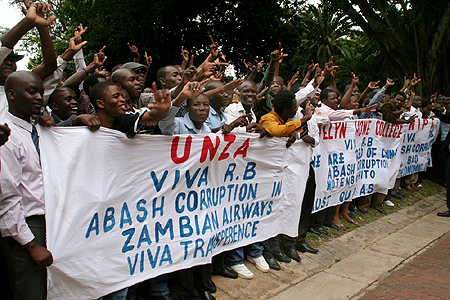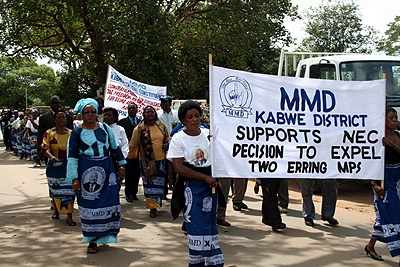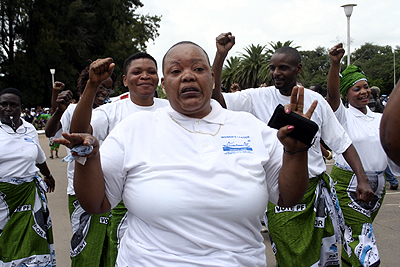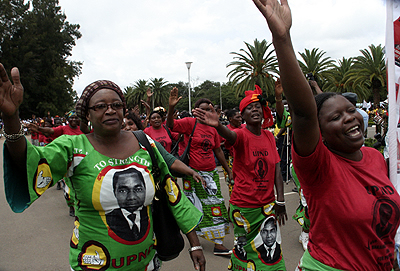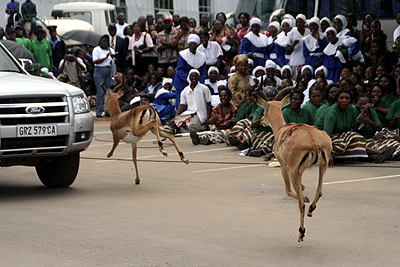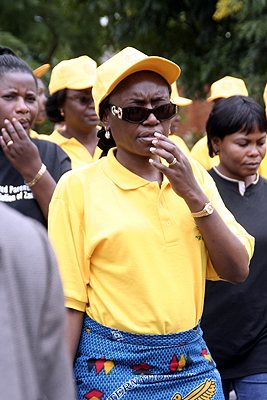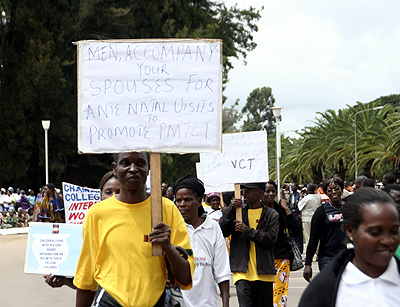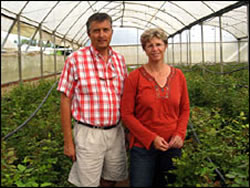
growing roses for export for the last 14 years.
But now the speed of the global downturn is forcing them to give up the business, threatening the livelihoods of hundreds of workers and their dependents.
The sudden collapse of the prices paid for roses in Europe, due to diminishing demand and oversupply, has made their business uneconomic.
And they are being forced to sell their farm as they can no longer keep up their loan payments to Barclays Bank, which is demanding immediate repayment.
” It’s a sad day,” says Angelique Elsinga as she walks round her farm with its eight giant greenhouses – which produced 40 million roses for export last year.
“It’s cheaper for us to destroy the roses now than send them to Europe.”
They are shutting off the irrigation pipes in seven of those greenhouses, growing only for the local market and switching some of their production to vegetables.
“We had to shut down production during the two weeks before Christmas, something we had never done before,” said Watze Elsinga.
“And just before Valentine’s Day, our suppliers told us not to send any more roses – their warehouses were full.”
“We have never seen such low prices.”
Social gains
For the Elsingas, who came to Zambia from the Netherlands 14 years ago, the farm was a social enterprise as well as a business.
They have constructed housing for their workers, and built a community centre and a school for 600 children on the premises.
And they have provided year-round employment for nearly 200 workers.
Now they will have to lay off all the workers at the rose farm, with only a few finding employment in the vegetable business which they hope to continue at another location.
Difficult conditions
According to Luke Mbewe, chief executive of the Zambia Export Growers Association (Zega), flower exporters in Zambia face more difficult conditions than their rivals in other African countries such as Kenya, Tanzania, and Uganda.
Flower exporters are dependent on a secure supply chain, with the fresh flowers kept refrigerated and disease-free as they are moved quickly from the farm to markets in Europe within 48 hours.
But in Zambia, transport costs are higher, because of the higher cost of petrol and jet fuel that has to be imported into this land-locked country.
And the lack of a substantial scheduled air freight service has meant that they have had to charter flights to take their flowers to market.
They have also faced problems with electricity supply, with Zambia’s government-owned electricity company Zesco introducing rolling power cuts throughout the country over the past year.
The sharp drop in the value of the Zambian currency has raised the cost of fertilisers, fuel and other farm inputs.
Mr Mbewe says he knows of a number of other farms that have gone out of production, and he now fears for the future of the industry.
Economic hopes
Zambia remains one of the world’s poorest countries, with more than 60% of the population living on less than $2 a day.
Now its prospects for economic growth have been dented by the decline in the world price of copper, which makes up 90% of the country’s exports and provides thousands of jobs.
Zambia’s President, Rupiah Banda, says that the way for Zambia to cope with the global recession is by diversification, moving away from dependence on copper.
But the problems of the flower industry show how difficult this could be.
[BBC NEWS]







